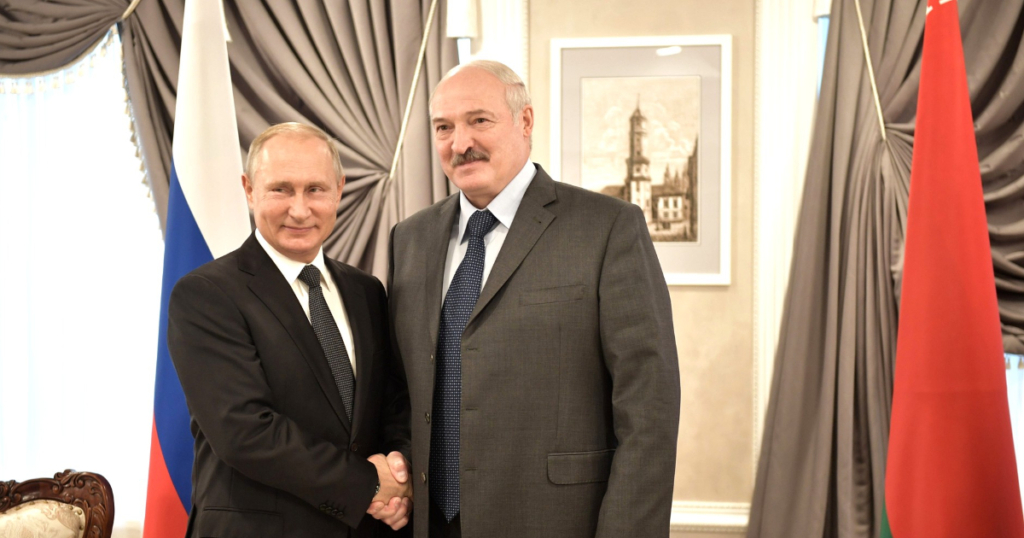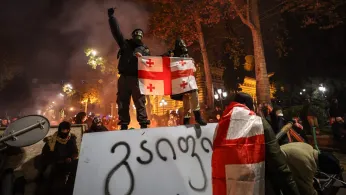
Why the Belarusian presidential elections matter for Russia
The most unpredictable presidential election in Belarus in 25 years will take place Sunday. In recent days, thousands have turned out to opposition rallies despite threats by the authorities to use force. Incumbent President Alexander Lukashenko has also gone all-out to secure victory, even attacking Putin in a two-hour interview with a Ukrainian YouTube journalist.
Who is likely to win?
There are only two candidates with a chance: former housewife Svetlana Tikhanovskaya and Lukashenko. All Lukashenko’s other opponents have been excluded from the race: blogger Sergei Tikhanovsky and banker Viktor Babariko are under arrest, while ex-ambassador Valery Tsepkalo fled to Russia. The campaign teams of Babariko and Tsepkalo — both represented by women — have thrown their support behind Svetlana Tikhanovskaya (the wife of imprisoned Sergei Tikhanovsky). Her programme is simple: release the jailed candidates and hold fair and free elections. There are three other candidates in the race, but their chances are minimal.

There is no independent polling in Belarus. In the early stages of campaigning some media surveys gave Lukashenko just 3 percent support. His real level of support is likely higher, but its exact level remains unknown, just like his chances of winning. A leaked poll conducted in April by the Belarus Academy of Sciences showed support for Lukashenko in Minsk at about 24 percent. Asked by The Bell about Lukashenko’s popularity, Belarussian political analyst Artyom Shraibman said between 25 percent and 35 percent of the electorate would likely back him.
How has campaigning unfolded?
Tikhanovskaya has spent recent weeks touring the country and holding rallies attended by thousands of people, an extremely rare event in authoritarian Belarus. Lukashenko has also been campaigning: he began the week with a speech to the nation in which he pledged a tough response to “provocations”.
Despite his violent dislike of the internet, Lukashenko gave an interview Thursday to the YouTube channel of Ukrainian journalist Dmitry Gordon. Lukashenko did not spend much time talking about the political situation in Belarus (to be fair, Gordon did not ask much about it), but rather engaged in a parody of post-Soviet Russia’s first president, Boris Yeltsin, and recounted tales about his “good friends”, by which he meant the leaders of neighboring states.
What was most striking about the interview was Lukashenko’s overly familiar references to Putin. Among the things Lukashenko said about the Russian leader:
- Yeltsin regretted choosing Putin as his successor.
- Putin is secretive and trusts no one.
- Putin has a lot to be worried about. “Ukraine has already been lost, may God ensure this does not happen with Belarus,” he said. “Putin is worried, but keeps making mistakes, one after the other. Why are you smothering us? We are really one nation.”
- “Putin and I met and I told him: ‘I am no longer the last dictator in Europe. And he told me: ‘What are you trying to suggest – that it’s me?’”

What’s the likely outcome?
Forecasts are difficult. The most likely outcome, according to analyst Shraibman, is that vote rigging will give Lukashenko up to 80 percent of the vote. This will lead to protests in cities across the country, with perhaps tens of thousands of demonstrators taking to streets. Then, the authorities will use a violent crackdown to suppress dissent, and eventually the situation will calm down. But, of course, other scenarios are possible.
Massive electoral fraud will be necessary for Lukashenko to win 80 percent of the vote, and the authorities are doing everything to keep independent observers out of polling stations. But Belarussian human rights advocates have set up an IT-platform for an independent vote and a million people are already registered (10 percent of Belarus’ population).
What does Moscow think about all this?
Putin and Lukashenko may have grown tired of each other in recent years, but they cannot do without each other. The toppling of Lukashenko would be “a catastrophe for the Russian authorities,” according to Russian political analyst Gleb Pavlovsky. “It is unclear how they would reach a deal with other candidates. Moscow has no Plan B.” This explains why Russia continues to back Lukashenko: the reaction to the recent detention of Russian mercenaries was muted, and there has been no halt to financial help for Belarus. Nor has there been any reaction to Lukashenko’s digs, although Putin did speak to Lukashenko on the phone Friday.
Political analysts told The Bell that Russia could be in favor of weakening Lukashenko without turfing him out of office. “They need Lukashenko, but they need him on his knees,” said analyst Yevgeny Preigerman. Nor can Belarus rid itself of Russian influence even if a new president wanted to do such a thing. Russia is Belarus’s main trading partner and Russian subsidies – both direct and hidden – are a key source of income for the Belarussian government. What is more, Russia is a major creditor for Belarus (the debt is over $7 billion).
Why the world should care
A historic political shift is underway in Belarus, similar to the victory of comedian Volodymyr Zelensky in elections in neighbouring Ukraine a year ago. And the outcome of Sunday’s elections are of crucial importance for the wider region — first and foremost, Russia.



